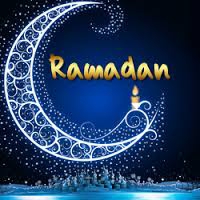 Tehran, June 28, IRNA -- Ramadan is the blessed month of holy Qur�an�s revelation, Qadr nights (the nights of the 19th, 21st and 23rd Ramadan), praying and an invitation to God�s feast, Iran Daily?s Sunday edition wrote.
Tehran, June 28, IRNA -- Ramadan is the blessed month of holy Qur�an�s revelation, Qadr nights (the nights of the 19th, 21st and 23rd Ramadan), praying and an invitation to God�s feast, Iran Daily?s Sunday edition wrote.Like many other Muslims, Iranians attend this feast by observing special religious customs and attending related programs.
The registration of Ramadan�s customs on the country�s Spiritual Heritage List shows the month�s importance among Iranians.
All healthy Muslims observe fasting, which is primarily an act of willing abstinence from all foods, drinks and certain pleasurable activities from daybreak to sunset.
Then, they gather with their families and friends to share an iftar, the meal that marks the end of the daily fast.
Families make a special effort to help the needy through charitable deeds.
Reconciliation among Torkamans
Iranian Torkamans observe special customs in the month of Ramadan.
In addition to fulfilling their religious obligations, all of them take part in Ramadan ceremonies.
They make the preparations at least one week before the start of Ramadan. Women clean the house and yard more than any other time, while men buy the groceries and things required for this month.
It is customary among Torkaman women and girls to clean the mosque of their area on the Friday preceding the start of Ramadan. Some families donate prayer rugs to the mosque.
Torkamans give importance to sighting the new crescent of Ramadan, which is considered a rewarding act.
They believe that anyone who sights the new moon sooner than others will enjoy God�s blessing. One who sees the crescent recites the Qur�anic chapter named Baqarah.
One of the good traditions among Torkamans is holding reconciliation ceremonies. The elders invite those who are enemies with each other and reconcile them.
Last Friday of Sha�ban in Shiraz
People of Shiraz in the southern province of Fars go to parks and green areas on the last Friday before the start of Ramadan.
Since Ramadan is the month of worshipping and doing charitable deeds, they distribute food among the needy and serve the meal served at sunset during Ramadan, as Muslims break the daily fast.
In Jahrom, people break their fast with date, cheese, jam, halva (a sweet made with flour, sugar, oil and rosewater) and naan roughani (a tasty bread made in the oven(.
Drummer in Markazi province
Many urban and rural women in Markazi province cook traditional cookies for the fast-breaking meal. The main confectionaries include gooshefil (a deep-fried sweetmeat) and zoolbia (fried fritters).
People usually break their fast with dates, cheese, aash reshteh (noodle soup) and sholeh zard (saffron rice pudding).
People from Khandab city and nearby villages are awaken before dawn by an elderly who reads the prayers of the late eminent poet, Khajeh Abdollah Ansari, and says, �Wake up�.
Barakat sack in Hamedan
Women in the western province of Hamedan prepare the Barakat (blessing) sack on the 27th day of Ramadan. They sew the sack between the two afternoon and evening prayers.
They believe that once a person puts money in this bag, God will bestow blessings.
Local people also distribute Ajil-e Moshkelgosha (problem-solving mixture of nuts) at the time of fast-breaking.
Qur�an recitation in Khash
Mosques of Khash in the southeastern province of Sistan-Baluchestan have a special ambience, as people offer extra prayers in this month.
Sunnis offer Tarawih prayers every night after breaking the fasts.
Khash residents consider Ramadan as the month of friendship, unity and respect to the elderly.
Completing the recitation of the whole Qur�an is a fixture among the residents of Khash.
Mazandaran traditions
Many people from the northern province of Mazandaran start fasting three days before the onset of the month of Ramadan.
When they have a wish, they complete the recitation of the Qur�anic chapter named An�am. They also invite skilful reciters.
In addition to various foods, they place salt, loaves of bread and water in a large tray in this ceremony.
By IRNA
The Iran Project is not responsible for the content of quoted articles.











